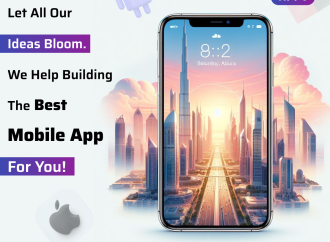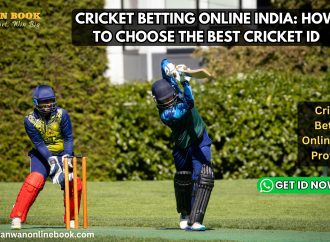Introduction: In the realm of engineering education, there exists a cadre of forward-thinkers, trailblazers who are reshaping the landscape of learning. Among them stands Dr. Maria Rodriguez, a visionary educator dedicated to revolutionizing the way we prepare future engineers. With a wealth of experience and expertise, Dr. Rodriguez embodies the spirit of innovation driving the
Introduction:
In the realm of engineering education, there exists a cadre of forward-thinkers, trailblazers who are reshaping the landscape of learning. Among them stands Dr. Maria Rodriguez, a visionary educator dedicated to revolutionizing the way we prepare future engineers. With a wealth of experience and expertise, Dr. Rodriguez embodies the spirit of innovation driving the field forward.
Expert Engineering Education: Dr. Maria Rodriguez
Dr. Maria Rodriguez is a distinguished educator with over two decades of experience in engineering education. She holds a Ph.D. in Mechanical Engineering and has spearheaded numerous initiatives aimed at transforming engineering pedagogy. Dr. Rodriguez is currently a professor at the School of Engineering at a leading university and serves as a consultant to various educational institutions and industry partners.
Understanding the Landscape of Engineering Education

Image by:bcg.com
The journey towards innovative engineering education begins with a deep understanding of the existing landscape. Traditional methods, while foundational, often fall short in equipping students with the multifaceted skills demanded by modern industries. Challenges such as passive learning environments and a disconnect from real-world applications underscore the need for a paradigm shift.
Key Strategies for Engineering Education
Embracing transformative learning requires a multifaceted approach. Hands-on, project-based learning emerges as a cornerstone, providing students with tangible experiences and fostering creativity. Integration of emerging technologies, from artificial intelligence to augmented reality, offers unparalleled opportunities for exploration and discovery. Collaborative and interdisciplinary approaches further enrich the learning experience, mirroring the dynamic nature of engineering practice.
Nurturing Creativity and Problem-Solving Skills

Image by:.icsid.org
At the heart of innovative engineering education lies the cultivation of creativity and problem-solving skills. Dr. Rodriguez emphasizes the importance of infusing engineering curricula with opportunities for experimentation and exploration. By nurturing critical thinking and analytical abilities, educators empower students to tackle complex challenges with confidence and ingenuity.
The Role of Mentoring and Industry Partnerships
Mentorship programs play a pivotal role in guiding aspiring engineers along their journey. Dr. Rodriguez underscores the value of mentorship in providing personalized support and insights from seasoned professionals. Furthermore, forging strong ties with industry partners bridges the gap between academia and practice, offering students invaluable exposure to real-world scenarios and industry best practices.
Overcoming Barriers to Implementation
Despite the undeniable benefits of innovative approaches, implementing change can be met with resistance. Dr. Rodriguez highlights the importance of addressing institutional barriers and fostering a culture of innovation. By allocating resources and garnering support from stakeholders, institutions can pave the way for widespread adoption of transformative practices.
Spotlight: Expert Insights from Dr. Maria Rodriguez
As a leading voice in engineering education, Dr. Rodriguez shares her perspective on the future of the field. Drawing from her extensive experience, she offers practical advice for educators and institutions seeking to embrace innovation. From cultivating a culture of curiosity to harnessing the power of collaboration, her insights serve as a guiding light for aspiring engineering visionaries.
Visual Table: Essential Elements of Innovative Engineering Education
| Elements | Description |
|---|---|
| Project-Based Learning | Hands-on approach to learning, fostering practical skills and creativity. |
| Emerging Technologies | Integration of cutting-edge tools and technologies into the curriculum. |
| Collaborative Learning | Encouragement of teamwork and interdisciplinary collaboration. |
| Mentorship Programs | Guidance and support from experienced professionals in the field. |
| Industry Partnerships |
Comparative Table: Traditional vs. Innovative Engineering Education
| Features | Traditional Education | Innovative Education |
|---|---|---|
| Learning Approach | Lectures and theoretical instruction | Hands-on, project-based learning with real-world applications |
| Focus | Knowledge acquisition | Skill development and practical problem-solving abilities |
| Engagement | Passive learning experience | Active participation, collaboration, and creativity |
| Preparation for Industry | Limited exposure to industry practices | Direct engagement with industry through partnerships and projects |
| Adaptability | Less responsive to rapid technological advancements | Adaptable curriculum integrating emerging technologies |
Conclusion:
Innovative engineering education holds the key to shaping the future of the profession. By embracing transformative approaches, educators can empower future engineers with the skills, knowledge, and mindset needed to tackle the challenges of tomorrow. With pioneers like Dr. Maria Rodriguez leading the way, the possibilities for innovation are limitless, paving the path towards a brighter, more resilient future for engineering education.




















